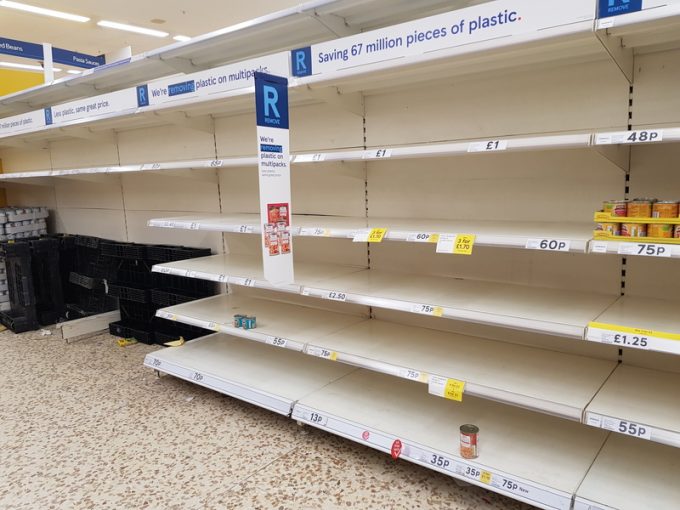UK pauses tariffs on 'everyday' items
Tariffs aren’t just a US thing. The UK – in a move which repudiates the ...
WTC: RIDE THE WAVEFDX: TOP EXEC OUTPEP: TOP PERFORMER KO: STEADY YIELD AND KEY APPOINTMENTAAPL: SUPPLIER IPOCHRW: SLIGHTLY DOWNBEAT BUT UPSIDE REMAINSDHL: TOP PRIORITIESDHL: SPECULATIVE OCEAN TRADEDHL: CFO REMARKSPLD: BEATING ESTIMATESPLD: TRADING UPDATEBA: TRUMP TRADE
WTC: RIDE THE WAVEFDX: TOP EXEC OUTPEP: TOP PERFORMER KO: STEADY YIELD AND KEY APPOINTMENTAAPL: SUPPLIER IPOCHRW: SLIGHTLY DOWNBEAT BUT UPSIDE REMAINSDHL: TOP PRIORITIESDHL: SPECULATIVE OCEAN TRADEDHL: CFO REMARKSPLD: BEATING ESTIMATESPLD: TRADING UPDATEBA: TRUMP TRADE

Fascinating essay from The Atlantic on the wave of panic buying that gripped the UK and elsewhere in the onset of coronavirus. Scenes of punch-ups between supermarket shoppers over toilet rolls were commonplace as the vulnerabilities of perishable and FMCG supply chains were suddenly laid bare. It became apparent that the just-in-time supply chains operated by supermarkets and other retailers of essential goods had been mirrored in many modern homes and, when the first signs that a lockdown was on its way, people looked at their inventory levels and realised they needed to stock up. “This month, the government advised those with coronavirus symptoms to spend seven days at home ‘self-isolating’. Like many others, I read this advice, looked in my fridge and thought ‘yikes’. My subsequent trip to the supermarket wasn’t evidence of hoarding; it was proof that I had been running an overly efficient supply chain into my own home.”


Comment on this article